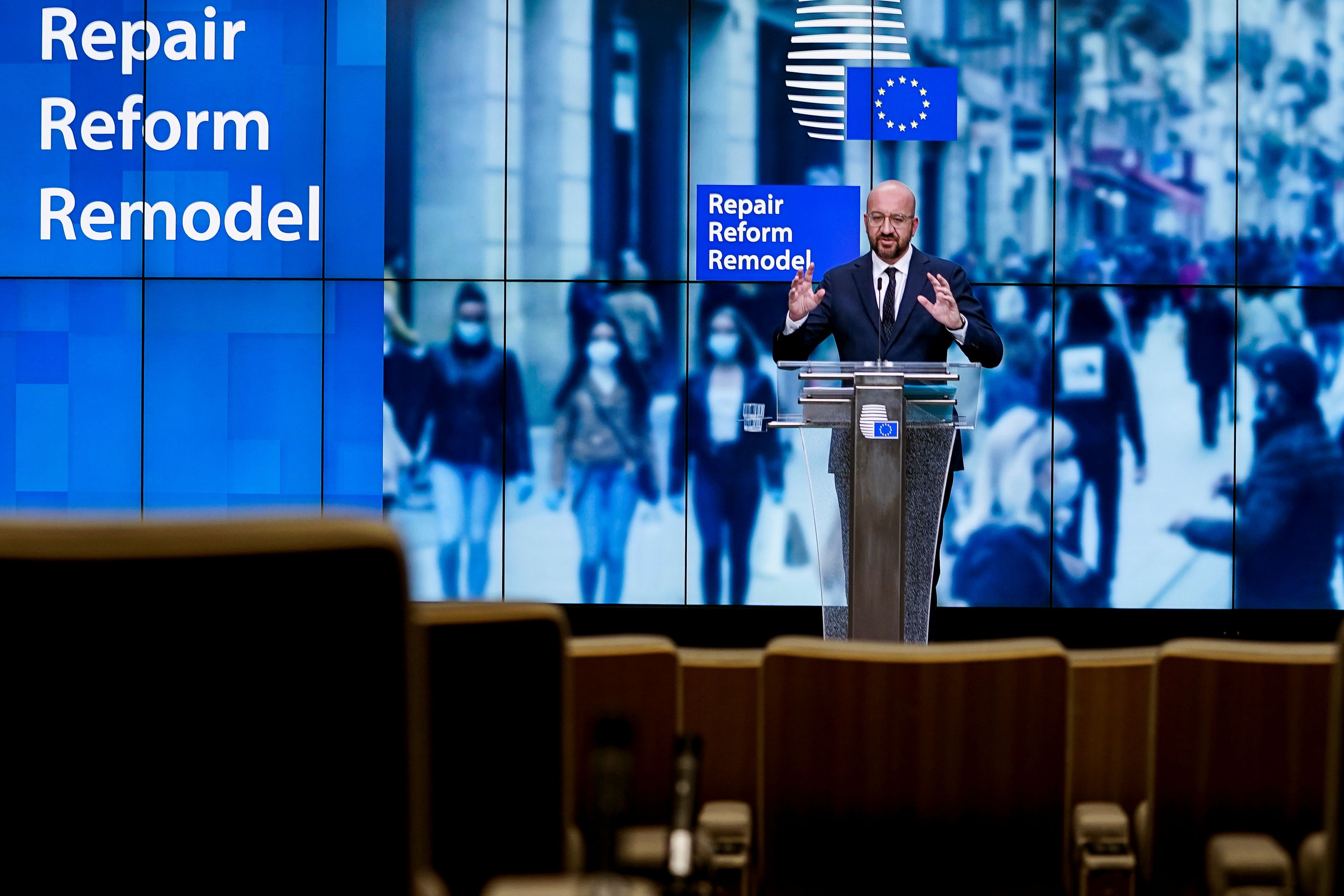The Importance of Legal Issues in the Negotiations of the Next Generation EU Recovery Fund

On 27 May, the EC put forward a new proposal for the Multiannual Financial Framework (MFF) 2021-2027 and for the pandemic recovery fund dubbed Next Generation EU (NG). The latter could be as much as €750 billion and may be funded by the EC through borrowing on financial markets. In the past, the Commission resorted to loans but never was there such a considerable sum in play. Moreover, the money raised would be lent to Member States but this time, most of the NG funds (€500 billion) will be allocated as grants.
Grants and the Principle of Budgetary Discipline
The main opponents of grants are the “frugal four”—Austria, Denmark, the Netherlands and Sweden, often backed by Finland. Apart from economic arguments, legal doubts have also featured in the debate. The Constitutional Law Committee of the Finnish parliament emphasised that according to Art. 310 of the Treaty on the Functioning of the EU (TFEU), the community budget must be balanced, which puts into question the legality of taking loans in order to gain resources for grants for Member States.
The EC argues that the borrowed funds should be treated as additional revenue that is not part of the annual budget. Commission representatives admit that this diverges from the standard practice for the establishment of the budget and financing of the Union but justify it by invoking the extraordinary circumstances. Art. 122 TFEU stipulates that “the Council, on a proposal from the Commission, may decide, in a spirit of solidarity between Member States, upon the measures appropriate to the economic situation” when the states are “seriously threatened with […] exceptional occurrences beyond its control”. According to media reports, the legal service of the Council apparently shares this interpretation of the treaty (the opinion is, however, confidential).
The EC also stresses that the legal act that empowers it to borrow money contains an obligation on the part of the Member States to commit additional funds to the EU budget to guarantee the repayment of the borrowed amount (starting from 2028). Therefore, there is no danger that the Union will create financial obligations that it will be unable to honour. The decision requires the unanimous approval of the Member States and their parliaments. With that, the EC would gain a strong mandate to carry out its plans.
Criteria for Distributing the Funds
Legal doubts also have been voiced in the debate on the division and use of the NG funds. The EC, when allocating the maximum amounts available to Member States within the Recovery and Resilience Facility, which will be endowed with the majority of NG funds, adopted three criteria: population, GDP per capita in 2019, and the average unemployment between 2015 and 2019. Consequently, half of the grants is to be reserved for four countries: Greece, Italy, Spain, and Portugal. The “frugal four” and some Central European countries pointed out that the criteria do not include the economic impact of the pandemic, which is surprising in the context of the legal basis cited for the recovery fund. The Czech prime minister questioned the third criterion, which in his view gives an unwarranted premium to countries that have recently conducted ineffective economic policy. The Commission argues that countries that were in a difficult economic situation already before the pandemic are the ones most in need of assistance.
The Council lawyers have not questioned this reasoning but suggested that enlarging the set of criteria would strengthen the Commission’s case, built on invoking the pandemic-related crisis as the main reason for creating the recovery fund. This advice was heeded by the president of the European Council, Charles Michel. His compromise proposal that will be the object of negotiations with the heads of state and government on 17 July includes a suggestion that, with regard to part of the resources for grants (€93 billion to be made available in 2023), the unemployment criterion will be replaced by a reference to the GDP change in 2020 and 2021.
Spending the Recovery Funds
The opinion of the Council legal service spells out some doubts regarding how to spend the NG money. It stresses that projects that receive funding should be closely linked with countering the harm of the pandemic. This applies, for example, to projects within the Horizon Europe programme that supports research (€13 billion out of 93 billion in its budget will come from NG). Such an interpretation could carry significant implications for the Just Transition Fund (JTF), which is to draw 75% of its funding from the recovery fund. The purpose of the JTF is to support the green transformation of the energy sector, especially in the countries where it could entail high cost. The Council lawyers suggested that the conditions for granting financial assistance adopted before the pandemic should be supplemented with parameters that reflect the additional challenges provoked by the health crisis.
Conclusions and Prospects
The legal doubts regarding the essence of the recovery fund do not seem substantial enough to block its creation. Besides, even the “frugal four”—the most sceptical of grants—do not want to eliminate them completely. They realise that for Southern Europe, grants constitute an indispensable element of the budgetary compromise. They could, however, use their legal concerns as arguments for reducing the portion of the fund allocated for grants, claiming this would facilitate the approval of their national parliaments to empowering the EC to borrow.
In a more long-term perspective, there could be attempts to question the legality of the EC’s actions, as happened in Germany regarding the intervention of the European Central Bank (ECB) during the economic and financial crisis. The likelihood of such challenges will grow if in the coming years no compromise is achieved around new European taxes, which, according to the EC plans, could contribute to the repayment of debt. The latter would then have to be covered from Member State contributions, which could encourage Eurosceptic movements, especially in countries that are net payers to the community budget, to turn to national constitutional courts to block it. However, the Commission’s actions, which must be approved unanimously by Member States and their parliaments, will be more difficult to contest than those of the ECB.
The comments by the Council’s legal service on the matter strengthen the case of states that promote modification of the proposed allocation of NG funds. They have already been reflected in the proposal by the European Council president. Even though the unemployment criterion was not particularly beneficial for Poland, replacing it with a criterion based on changes in GDP could result in a reduction of its anticipated share. According to the EC forecast, the recession in Poland in 2020 will be the least severe in the EU (GDP is to shrink by 4.6% compared to an EU average of 8.3%). Poland will thus advocate ascribing the largest weight to the GDP per capita criterion, which in the countries of the South, especially Italy and Spain, remain higher than in Central Europe.
A potential modification of the rules for granting resources from the JTF along the lines suggested by the Council’s legal service could have important consequences for Poland—the biggest beneficiary of the fund. The positive economic forecasts for Poland suggest that it could entail a reduction of its allocation. The opinion of the Council lawyers will also render it more difficult to grant states greater flexibility in how they spend the funds, which was something that Poland and other Visegrad Group members have advocated.
The importance of negotiations regarding national allocations notwithstanding, linking the disbursement of the funds to an assessment of the rule of law in a country could be a crucial factor in the size of the assistance from the recovery fund that Poland eventually receives. Such conditionality has been supported by the “frugal four” and a strong majority in the European Parliament. It was also included in Council President Michel’s proposal.


